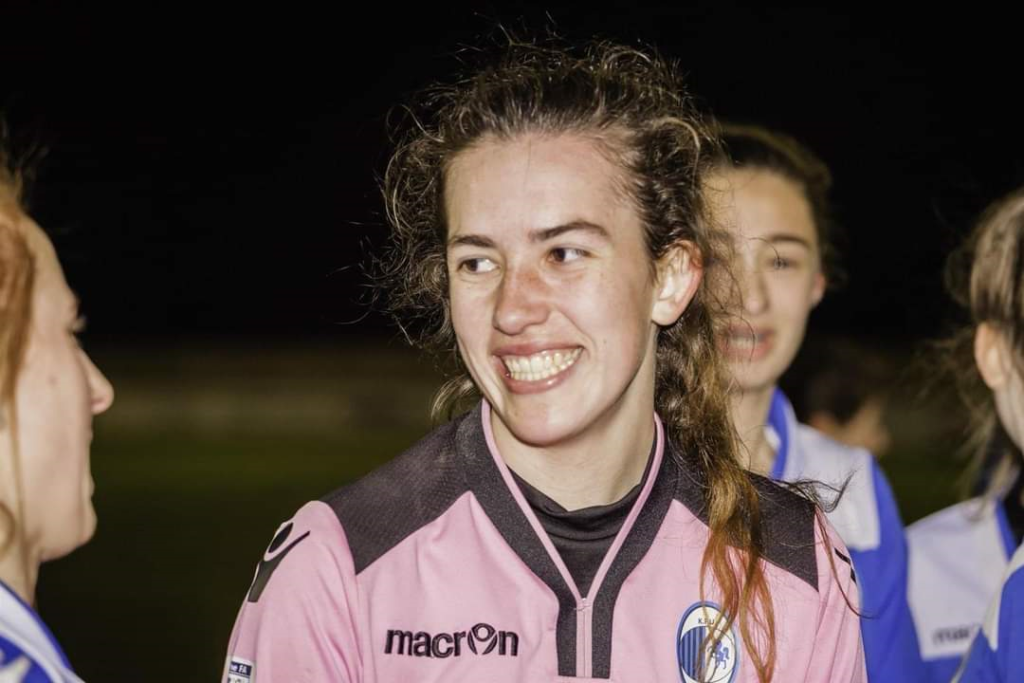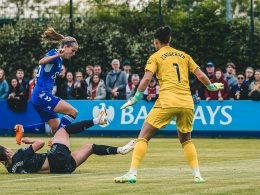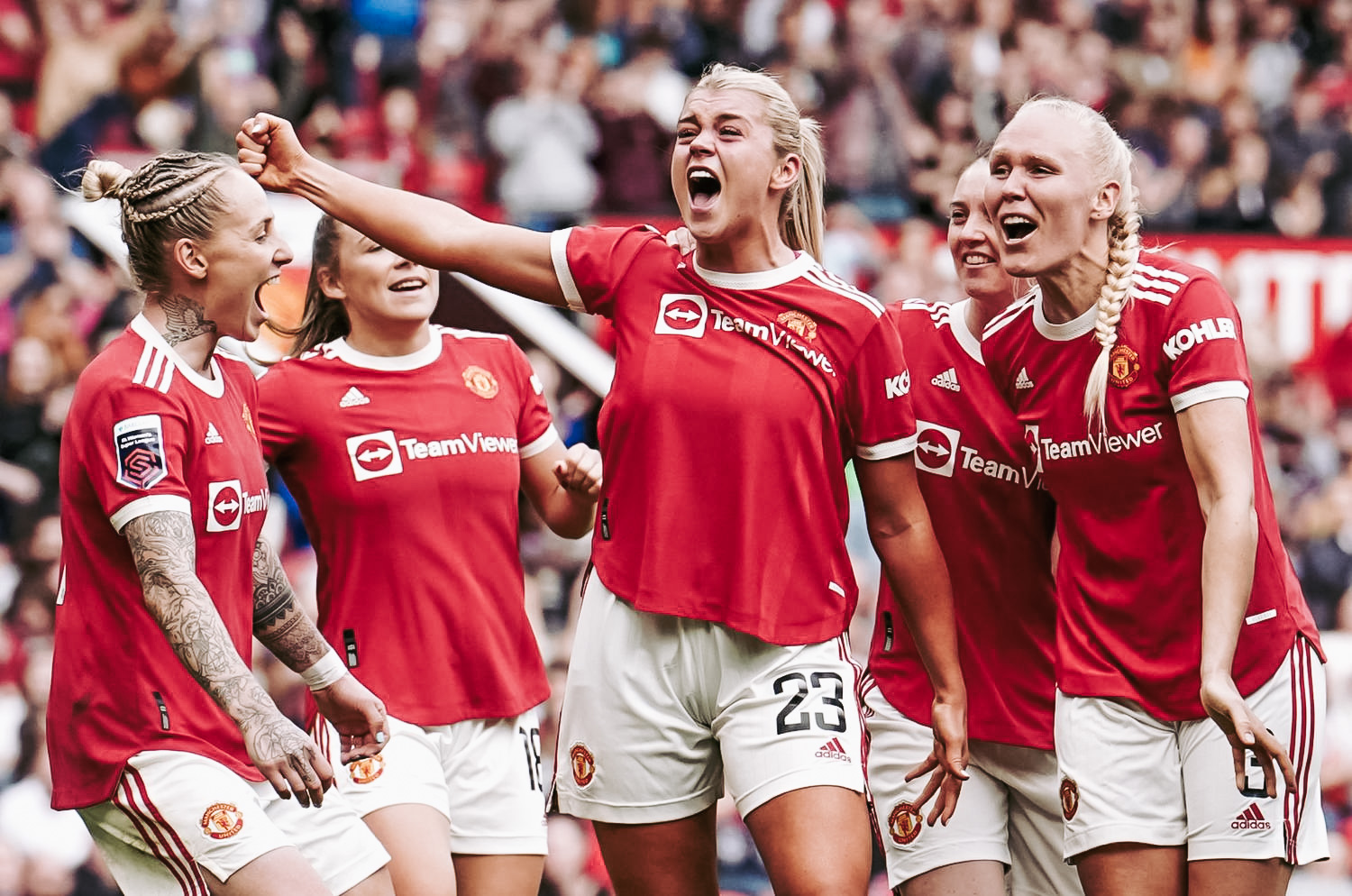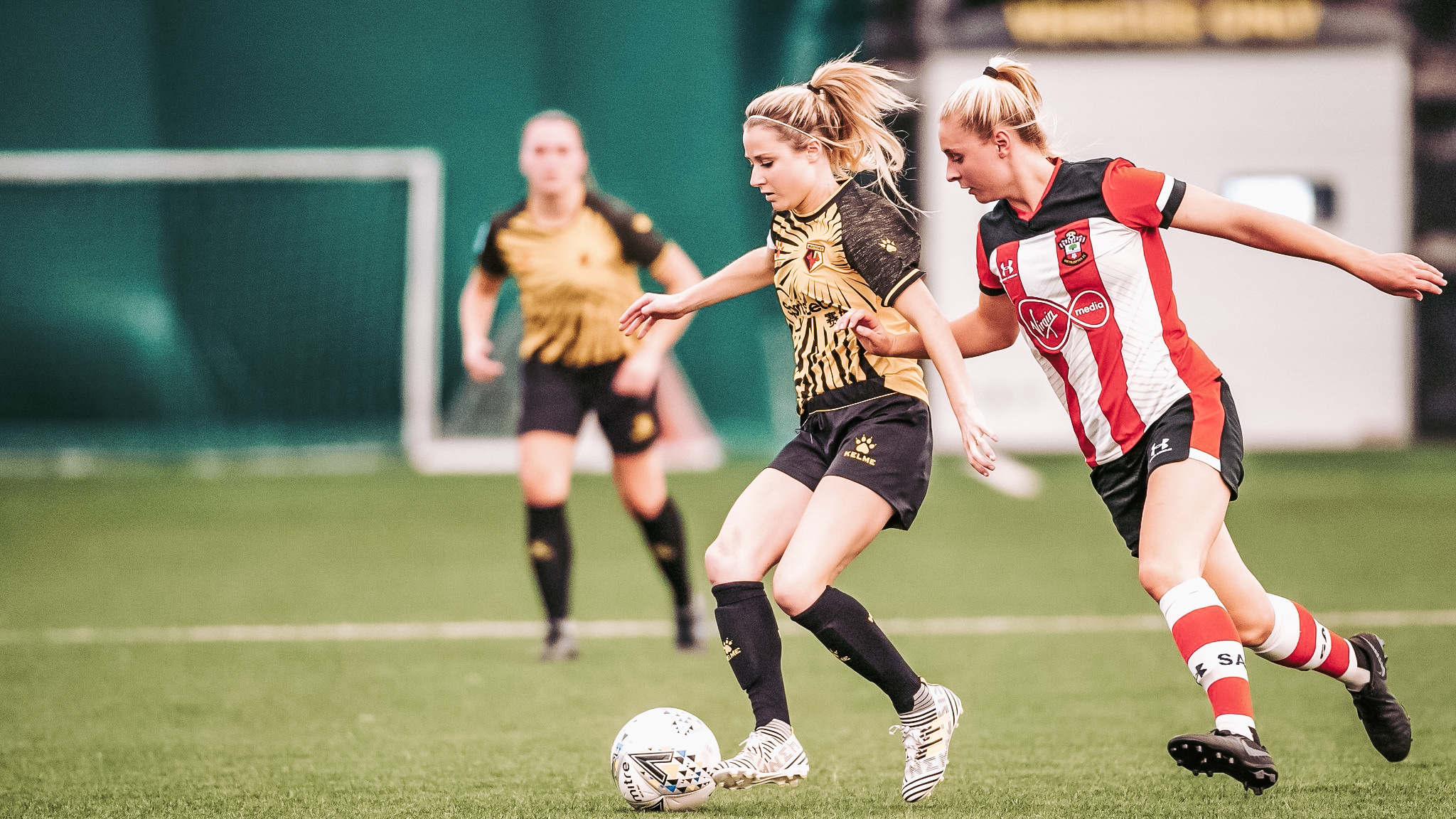MARCELLUS: Let’s follow; ’tis not fit thus to obey him.
HORATIO: Have after. To what issue will this come?
MARCELLUS: Something is rotten in the state of Denmark.
Hamlet – William Shakespeare: Act I, scene iv, 88-90
On the face of it, Manchester United are having a season it’s almost impossible for their fans to complain about. Embroiled in a four-way race for the Women’s Super League (WSL) title, having only conceded nine goals while scoring 38 and through to the semi-finals of the FA Cup. Racking up points at a rate of 2.3 per game in the WSL, with 13 of their 25 players having scored a WSL to spread the scoring through the team and share the load with Euros heroine Lessi Russo and Manchester’s own often-overlooked talisman Leah Galton (8 & 6 goals respectively), on the verge of new owners who are already promising to give United Women the investment they deserve (currently the Red Devils are only 5th-highest budget in the WSL) and ensure stars like Russo, Mary Earps and Ona Batlle stay with the squad, and with some of the most passionate and loudest fans in the women’s game. They appear to be succeeding well on all three fronts.
But, like Hamlet’s Denmark, while all appears prosperous on the surface, there is unease underneath. Those on the throne at Old Trafford directing the women’s team are not receiving the praise and adulation you’d expect. There remain questions over Lessi Russo and Ona Batlle’s futures beyond this season, with Mary Earps, too, having a contract renewal looming in the next few years.
Despite appointing former Brighton director of football Polly Bancroft to oversee the women’s team and her arrival with a big reputation after overseeing Brighton’s development of their women’s facilities to some of the best in Europe, somehow, Manchester United are still not perhaps acting and behaving as…well, a team like Manchester United should be. That is the contention of a growing group of fans – and it is an issue splitting the United fanbase as to who is to blame.
On the one side, there are the questions about recruitment and transfers – while Chelsea go out seemingly every summer and recruit a marquee name in women’s football, the incomings in Manchester are perhaps more mundane – best summarised by the fact that Chelsea’s highest-profile signing this summer was Olympic gold medallist and UWCL winner Kadeisha Buchanan in a stated move to win the Champions League amongst a raft of international player transfers like Johanna Rytting Kaneryd, Manchester United trumpeted the free transfer of Rachel Williams, the arrival of Nikita Parris from Arsenal and the free transfer of Adriana Leon from West Ham…all transfers which, while excellent players, were received by a lot of United fans with lukewarm excitement given that big-name players like Lieke Martens, Caroline Weir and even Lucy Bronze were all on the market and, perhaps more relevant in the discussion, were more attention-grabbing and had been more productive recently at WSL/league level than Parris (coming off a season where she only started 5 times for Arsenal and only scored one WSL goal and provided three assists), Williams (a 34-year-old striker who was very much seen as a backup to Russo) and Leon (who had performed brilliantly for Canada but had a grand total of 10 WSL goals and one assist in three seasons at West Ham – compared to Leah Galton’s eight goals and three assists in 2021/22 alone.
Lucia Garcia’s signing from Atletico Bilbao was greeted with more positivity and Maya Le Tissier’s arrival from Brighton was seen as something of a coup, but there were questions over recruitment and more importantly how these players would fit into a team that was already strong in the positions being reinforced.
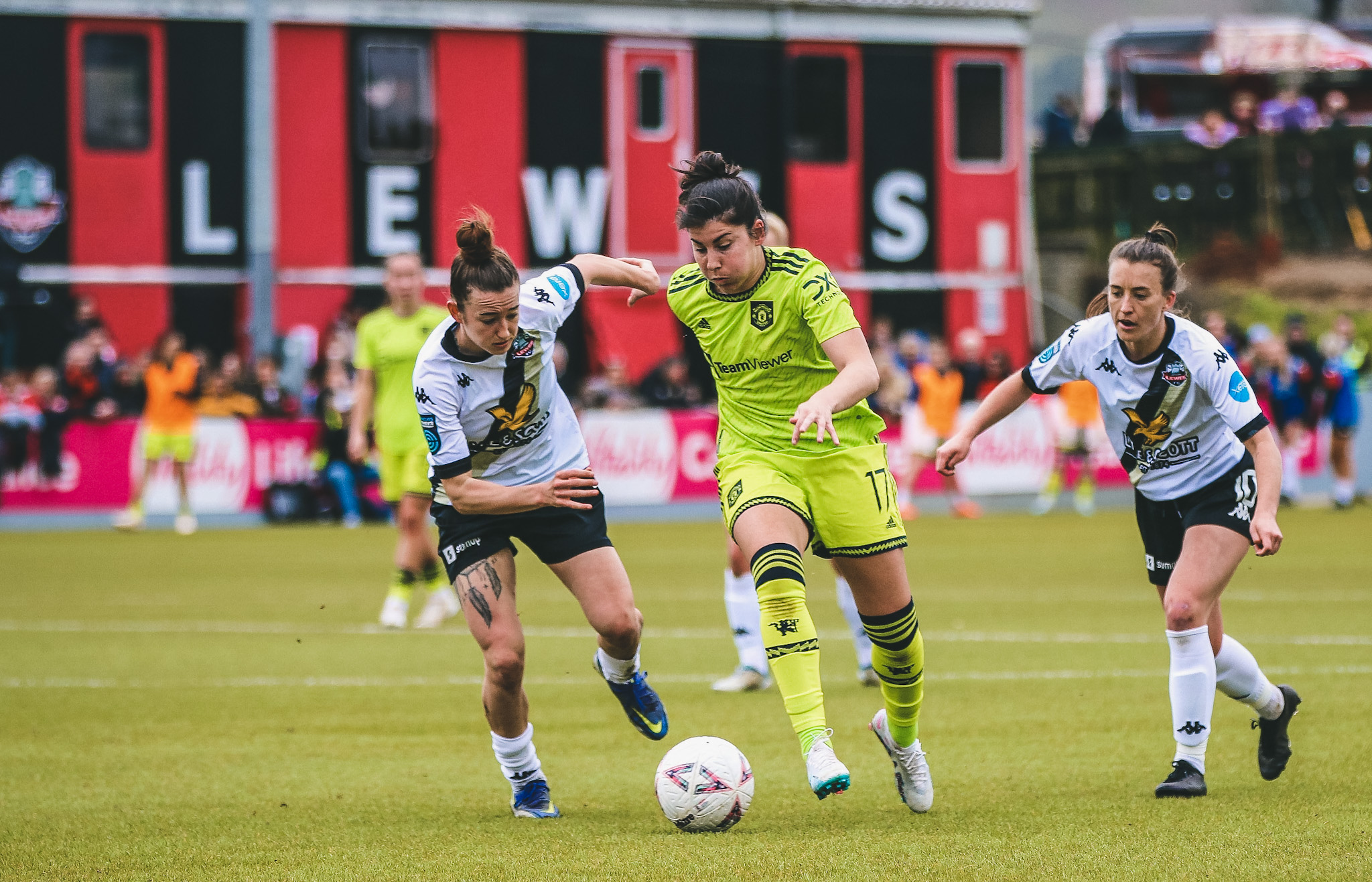
January saw another Canadian, Jayde Riviere, arrive to finally bolster the fullback position along with Norwegian midfielder Lisa Frejstad Naalsund, but with Batlle’s contract negotiations dragging and rumours of Manchester United being unwilling to pay the salary a Euro winner like Russo can demand, there have still been fans wondering who is making the recruitment decisions and what the strategy is.
That, however, has not been the main cause of unrest amongst the United fanbase or potential confusion from those outside of United. That main cause rests with one person – the man chosen by United to build on the foundations laid by Casey Stoney and build upon what she has finished – the divisive, sometimes confusing persona of current manager Marc Skinner.
On the face of it, Marc Skinner is well qualified to manage a club like Manchester United with his CV boasting previous work at Birmingham and then in the glare of publicity of arguably the strongest women’s league in the world, the NWSL, as manager of Orlando Pride, where he was moderately successful. He was brought in by United with the brief of building on the foundation laid by Casey Stoney in sometimes challenging conditions. He’s had the benefit of what United refer to as an increased investment, one of the highest profile brands in the world to attract players, and the backing of Man Utd executive John Murtough’s claim that “Marc is an excellent coach, but he also has incredible drive, ambition and a vision for the team”.
However, in his first season, he finished with a slightly worse record than Stoney, five points worse off and in the same position. Over the summer of 2022, with Manchester United containing two of the biggest factors in the Lionesses Euros win, Skinner and the Man United hierarchy had the perfect opportunity to build on the first season with one of the biggest brands on the planet to aid them.
As previously mentioned, though, a slightly confusing-to-outsiders transfer policy over the summer laid the foundations for a season where despite a promising on-field performance, Skinner divided the Manchester United fanbase. The signing of Nikita Parris and Rachel Williams were both seen as underwhelming by some after they were deemed surplus to requirements at their former clubs, as was that of Adriana Leon – although these were offset by Aissata Tounkara, Lucia Garcia (another winger) and most importantly, Maya Le Tissier.

The problem that has become increasingly apparent throughout this season, one that is perhaps masked by Manchester United’s league position but is increasingly causing issues for the club and likely going to be a factor in continuing to recruit the kind of players needed to compete at the top table of European football and indeed retain stars like Ona Batlle and Lessi Russo.
That problem is Marc Skinner’s squad management in the WSL, and the inherent bias that seems to exist within that means players who could be the difference in close games to Manchester United – international quality stars – are being left on the bench and underused to the point that it risks driving current players away.
To illustrate the problem, let’s take a look at the following chart, which, in its purest form, can be used to demonstrate manager selection biases within squads. It compares the proportion of playing time given to foreign players with the proportion of foreign players making up the squad. The playing time stats were produced with help from Manchester United fan Namrata.
A representation of playing time for English and non-English players, by WSL squad.

As you can see, with the vast majority of WSL teams, the nationality of players has no major impact upon selection for managers – most WSL squads, being made up largely of English players but with some of those English players being youth or fringe players, tend to have very little selection bias based on nationality and the proportioning of game time tends to reflect their squad makeup – and the anomalies or gaps are often explainable – for example, Chelsea may seem to slightly favour English players to foreign players but when you bear in mind the sheer strength of Chelsea’s English contingent (Millie Bright, Fran Kirby, Lauren James to name but three it makes sense). What is particularly notable is Manchester City and Arsenal are almost dead equal in the proportion of English players to game time, in a similar position)
What REALLY stands out, though, is Marc Skinner’s squad selection biases. Manchester United’s squad has over half of its squad as non-English, but those players, in the WSL, are only receiving 15% of the game time. When you compare that against the rest of the WSL and indeed United’s fellow title challengers, the difference is stark and would suggest that Marc Skinner simply doesn’t rate his non-English players as highly as the English players in his squad, or sees them as “fringe” players. Which, considering the fact that amongst those fringe players are several that he signed including at least two lynchpins of their international teams in Leon and Boe Risa, is a surprising stat.
Managers have their reasons, however – perhaps players aren’t performing well or earning their game time in performances, for example.
The trouble with Manchester United, however, is twofold.
One is that players simply aren’t being given the chance to stake a claim (the most stark examples of these in Skinner’s case is the curious case of Adriana Leon – an Olympic gold medallist recruited by Skinner and his management team in the summer.
“Adriana is a player that will excite our fans and offer valuable experience both on and off the field. I was extremely impressed with Adriana’s character, as she expressed confidence and fearlessness when we discussed her coming to Manchester United. Her flexibility to play in multiple positions effectively, while attacking and defending one-on-one duels with ferocity, will add excellent variety to our continuously developing team.”
Marc Skinner Leon on her signing announcement
Nearly a season later, Adriana Leon, for all her “flexibility”, “character” and “experience” has played a total of 81 WSL minutes spread over five appearances for Manchester United, or around 5% of possible WSL playing time.
Skinner has said when asked about this lack of playing time, which came to a head with Leon being left completely out of the squad despite being fully fit just after the closing of the transfer window “We’ve just got a really competitive squad right now. Adriana has lot of attributes but has to start putting them into consistent practice” – clearly with the implication that an Olympic gold medallist who, by the way, has scored 4 goals for Canada in eight starts and apparently is doing so because the Team Canada squad – the nation ranked 6th in the world….is doing so in a squad with less competition for places than a WSL team.
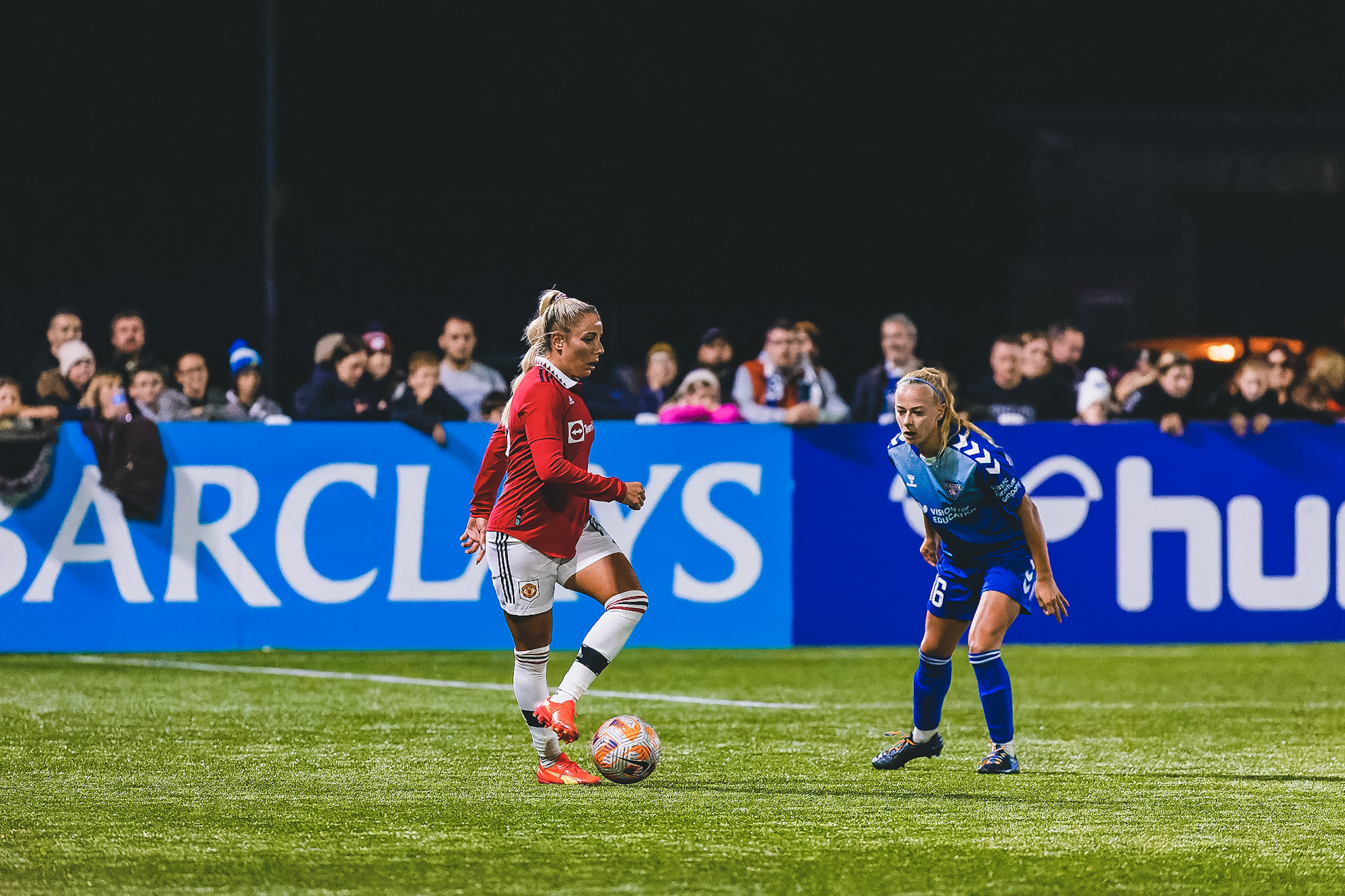
Despite Skinner’s seeming reservations about her application and character, by the way, he saw fit to turn down a loan in January to give Leon game time at AC Milan – a loan that with its 120k fee would have almost paid for the ensuing club record transfer of Lisa Naalsund by itself.
This season, despite the attributes she is apparently not putting into practice consistently, Leon has scored only one less attacking point (goal or assist) than Nikita Parris, who has played over ten times the minutes in the WSL. She has scored two goals in three games in the cup competitions she’s been used in, so is currently scoring at nearly ten times the rate per 90 mins.
So far, though, this can be explained away by Leon not “fitting in” at United or in Skinner’s plans…which might beg the question why he was so gushing in praising her on signing, but that’s a side point.
However, there is a pattern with Skinner, both in his rhetoric and in squad management with regard to non-English players – and to see it, let’s compare his rhetoric on Leon to that of another Manchester United player who many fans and some journalists feel is being sold short by her manager – Norway’s Vilde Boe Risa.
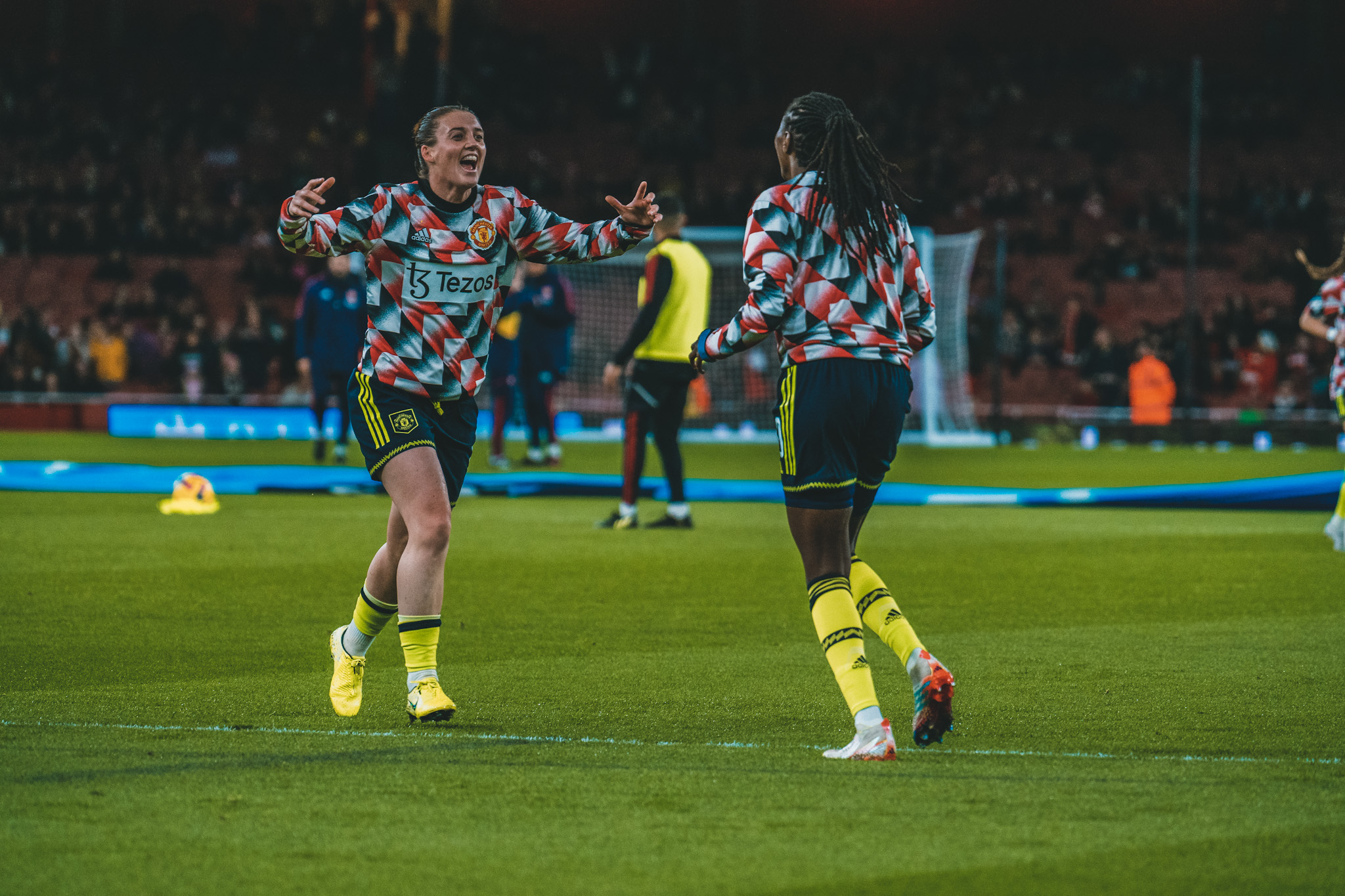
Boe Risa has played more minutes than Leon this season – though barely, only receiving 113 WSL minutes across 8 substitute appearances, for no offensive production. However, unlike Leon, Skinner has deigned to give the Norwegian a chance to impress in cup competitions – one that she has taken in spades – she is United’s leading scorer in cup competitions with 5 goals in six games and has been amongst United’s best performers in every game she played.
But her manager seems strangely reluctant to give her credit…if you go through a pattern of interviews with him this season whenever Boe Risa’s name is mentioned, the emphasis is always on what she can’t do rather than what she can – or her lack of competitiveness and “bite” in midfield.
He has also recently emphasised preferring to play Katie Zelem to Vilde Boe Risa due to Zelem’s ability to help the team create more from deep. Which is interesting, given that Manchester United have scored an average of 2 goals more per 90 minutes during the time Boe Risa is on the pitch, and Boe Risa herself creates an average of two more scoring chances a game than Zelem does, according to fbref.com.
Even the justifications for his squad selection seem overly intricate and seem to fly in the face of the evidence on the field – there is no doubt Manchester United are a more effective and positive team when Boe Risa is on the pitch as journalists like Charlotte Harpur at the Athletic have noted due to her having less tendency to pass sideways or backward than Marc Skinner’s favoured players of Zelem or Hayley Ladd but along with other players Skinner seems reluctant to deviate from a starting eleven – seven outfield players, have played over 80% of possible minutes this season.
The list continues – Aissata Tounkara, a French international defender, has played only 5 WSL minutes this season after being recruited by Skinner in the summer. Lucia Garcia, as the most-used of Skinner’s signings apart from Parris (and also the most-used non-UK player apart from Ona Batlle) has played less than half of the possible minutes in the WSL despite being more productive in every category than Nikita Parris.
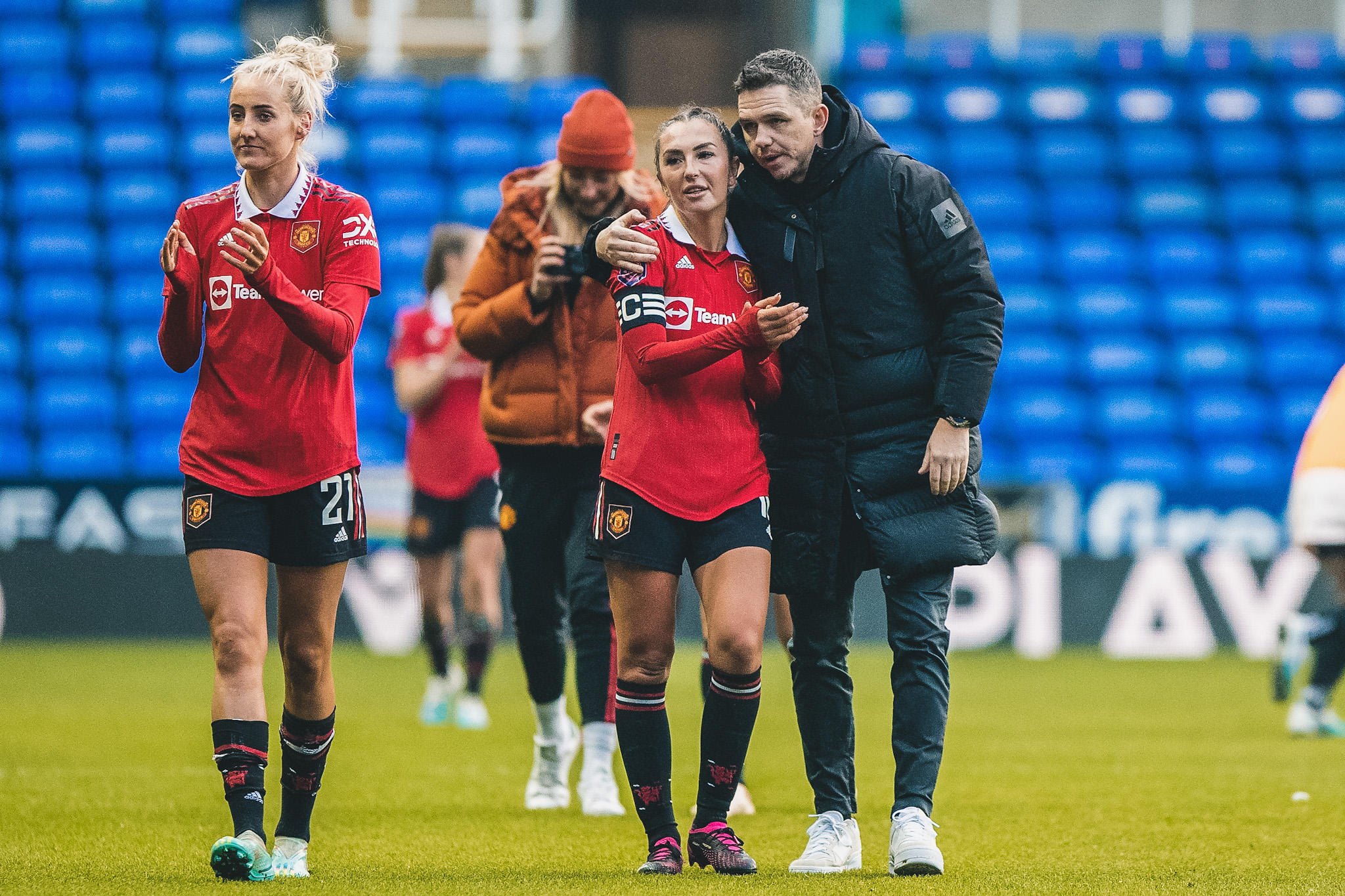
And so what we have here is a pattern of non-UK players of proven international pedigree being recruited and either simply disappearing into obscurity while not being given the chance to produce (Leon) or producing every time they’re given an opportunity but still not being rewarded with extended game time (Boe Risa). Not only that, but these players are often being publicly undermined by their manager (Leon) or damned with faint praise when singled out (Boe Risa) – to the point their international managers (Bev Priestman in the case of Leon, and Hege Riise in the case of Boe Risa) are coming out publicly to question or bemoan their treatment while pointing out the effect that may have on their international future.
These questions are troubling for Manchester United as a team because, as in every profession, players talk about their work environments and their bosses – but very rarely do we have a situation where a manager currently second in the WSL is having his squad management and treatment of players publicly questioned by their international teams – a state of play that’s only more glaring in a World Cup year like this one.
The question that seemingly isn’t being asked but looms over every discussion of Manchester United’s season so far is – what is the overarching strategy, and are United being limited by their manager’s insistence on playing certain players to the seeming detriment of others? There have been games like the narrow 1-0 loss to Chelsea where “what might have been if Player X had been given a chance to play” has been the overarching theme of the post-game post-mortem among fans. Too many of them. Will a lack of flexibility harm United’s chances in a way more flexible squads and managers (like all three of their title rivals) can take advantage of?
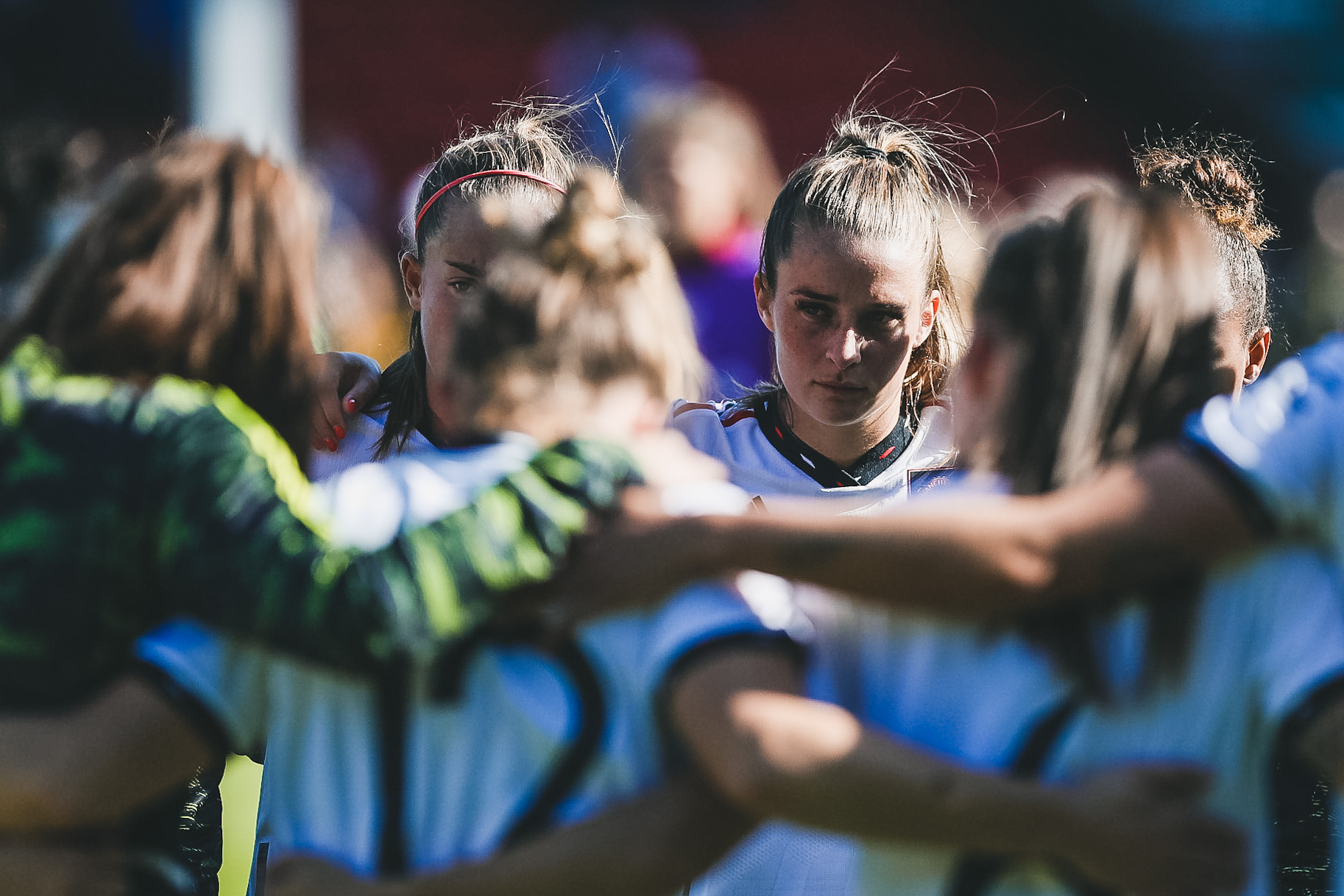
More crucially, how are United’s potential transfer targets or indeed those within the squad currently with expiring contracts likely to view a manager who uses a lot of words publicly and increasingly convoluted justifications NOT to play players who clearly have a positive impact on the team when they do play at the expense of others? United appear to be experiencing short-term success right now but how will actions like signing a player and only playing her for 80 minutes all season while publicly challenging her commitment level affect the club’s image in the future?
Football management is one of the toughest jobs in the world – it’s a mixture of human resources, player management, tactical nous and luck. But truly successful managers, like Emma Hayes and Sarina Wiegman, for example, have managed to cultivate an environment where every player believes in the project and feels valued. The question is – is Marc Skinner doing the same?
That, from the outside, may not be the case at Manchester United right now, and the responsibility for that rests at the top. The question is, is it a fatal flaw in United’s challenge and how long will it be before it starts to have damaging effects on the club as a whole?
We shall see in the coming weeks and months.






